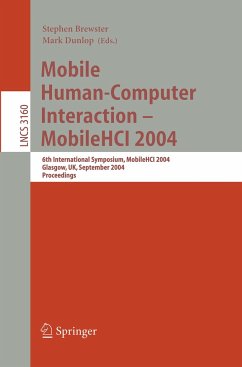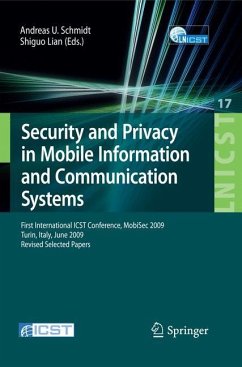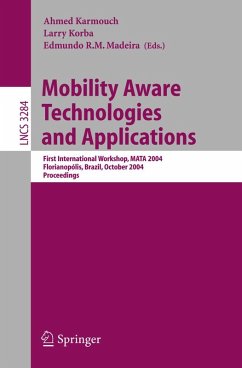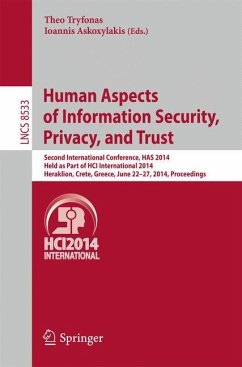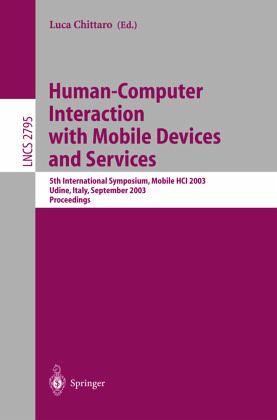
Human-Computer Interaction with Mobile Devices and Services
5th International Symposium, Mobile HCI 2003, Udine, Italy, September 8-11, 2003, Proceedings
Herausgegeben: Chittaro, Luca

PAYBACK Punkte
39 °P sammeln!
New and adapted user interface design strategies which are overcoming the limitations of today's mobile devices are indispensable to design usable mobile applications. With the upcoming of UMTS and WLan we need smart user interface metaphors and c- cepts which are taking into account the characteristics of mobile restrictions. Visual design greatly helps to convey and express information efficient and elegant to the user. As stated before mobile applications will change the way we communicate and live. The key factor remains the user. Therefore always remember: It's not the device that's mobil...
New and adapted user interface design strategies which are overcoming the limitations of today's mobile devices are indispensable to design usable mobile applications. With the upcoming of UMTS and WLan we need smart user interface metaphors and c- cepts which are taking into account the characteristics of mobile restrictions. Visual design greatly helps to convey and express information efficient and elegant to the user. As stated before mobile applications will change the way we communicate and live. The key factor remains the user. Therefore always remember: It's not the device that's mobile it's the user. Reference [1] Weiss, S. : Handheld Usability, John Wiley & Sons, (2002) iCAMS2 Developing a Mobile Communication Tool sing Location Information and Schedule Information with 2ME Yasuto Nakanishi, Shouichi Kumazawa, Takayuki Tsuji, and Katsuya Hakozaki Graduate School of Information Systems, Univ. of Electro-Communications 1-5-1 Chofugaoka, Chofu-City, Tokyo 182-8585, Japan {naka,kumazawa,taka,hako}@hako. is. uec. ac. jp Abstract. In this paper, we introduce a mobile communication tool which uses location and schedule information. From the lessons learned by conducting user studies on our previous system, we made improvements by implementing the use of mobile phones equipped with a GPS and a J2ME. We conducted user studies for this new system, and the results showed that differences in the size of the area in which users move about as they conduct their daily activities might account for their different preferences.





